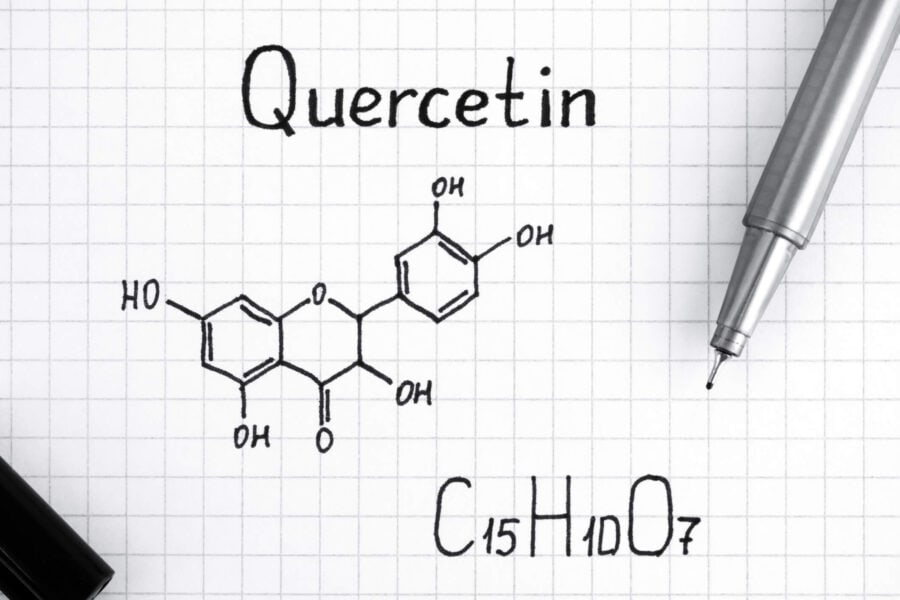One of the many reasons why exercise is healthy is that it makes you sweat. Sweating is good for you – if you sweat, toxins come out of your system.
Today, people are more frequently exposed to unhealthy chemicals than they were in the past. These chemicals lead to physical and mental health problems.
You can avoid these problems by minimizing the damage that these chemicals cause. You can get a water filter, drink bottled water, avoid heavily processed food, and avoid storing food in plastic. You can also exercise until you sweat, which helps your body eliminate toxins.
If you sweat by exercising, you also get all of the other benefits of exercise. The sweating itself makes you healthier, and exercise has many health benefits besides that.
What chemicals does sweating help you remove?
Sweating protects you from bisphenol A (BPA), a harmful chemical that leaks out of plastic and into our food. Building materials often include this chemical also, so there is no way out of being exposed to it.
You can even end up with an unhealthy amount of BPA in your body just from touching receipts at the store. Receipts have a lot of BPA on them, so do countless other things we encounter every day. BPA causes hormonal issues and may raise blood pressure.
The best way for your body to get rid of BPA is by sweating. Research shows that sweating can get rid of significant amounts of BPA. Either exercise or saunas can help you get BPA out of your system.
Another concern is heavy metals. While people are exposed to less lead today than a few decades ago, heavy metal exposure is still an issue. Many people have unhealthy levels of lead, cadmium, mercury, and arsenic in their bodies.
While some dispute that sweating is a good way to remove heavy metals, there is evidence in favor of it. If one examines human sweat, one can find toxic heavy metals in it, as sweat is a way for the body to excrete these metals.
Sweating also removes polychlorinated biphenyls (PCBs). PCBs are also everywhere in the environment today and have many negative health consequences.
Sweating prevents kidney stones
You are less likely to get kidney stones if you sweat often. If you are worried about kidney stones, exercise with sweating can prevent them, at least for women over 50.
There is not yet any research for men and younger people, but exercise might prevent kidney stones for everyone. Your kidneys filter toxins out of your system. If you exercise and sweat, your kidneys won’t have to work as hard.
Sweating may prevent cognitive decline
Using a sauna often may prevent Alzheimer’s disease, especially if you go in a sauna frequently. According to a 2016 Finnish study, the effect is quite significant. Exactly how sweating prevents this disease is not known, but it seems to work very well in practice.
For sauna bathing to prevent Alzheimer’s, you should go in the sauna often. Once a week may not be enough.
Those who go in a sauna 4-7 times a week have a 65% lower risk of Alzheimer’s compared to those who use a sauna only weekly. Sauna use will prevent dementia other than Alzheimer’s as well. Those who used saunas the most were 65% less likely to develop dementia in the next two decades.
Weekly sauna use also helps – it makes Alzheimer’s 20% less likely and Dementia 20% less likely compared to people who don’t use saunas – but you should use a sauna 4-7 times a week for the biggest benefits. While the studies refer specifically to saunas, any kind of sweating may have the same effect.
Sweating can make your skin healthier
Many people have noticed that sweating can make their skin look better. Your skin can’t be and isn’t supposed to be completely free of bacteria. Instead, you are supposed to have healthy bacteria on your skin rather than unhealthy bacteria.
Sweating can make your skin look better because it helps good bacteria grow and replace unhealthy bacteria. Sweating may also remove unhealthy bacteria from your skin.
Sweating helps with exercise recovery
If you sweat, blood moves to your skeletal muscles. This will help you recover faster, so your muscles won’t stay sore for long after a heavy exercise session.
Sweating gets rid of stress
Exercise reduces stress levels, and some of that may be because of sweating. Sweating causes your body to release endorphins, which make you feel calm and happy and make negative emotions affect you less.
No one wants to sweat when they are stressed out. Stress sweat may smell worse than other sweat does. However, you may be able to reduce your stress levels and avoid stress sweat by intentionally sweating during exercise.
Why do people sweat?
Sweating is about cooling off. If it is hot out or you are exercising, your body releases sweat because you cool off when the sweat evaporates. If it is humid out, you can get heatstroke more easily because the sweat won’t evaporate.
Sweat is also one of the body’s ways of getting rid of toxins. It is natural and healthy for your body to get rid of toxins through the skin. If you don’t exercise to the point of sweating, you may hardly ever sweat in colder weather, which isn’t good for you.
Can you sweat too much?
Some people sweat a lot when they don’t need to. They might suddenly start sweating a lot in cooler weather for no reason. This is a condition called Hyperhidrosis and can worry those that experience it.
Talk to your doctor. It is probably not happening because you have a serious illness. Whatever is causing it is quite likely not very dangerous for you to have.
Some people have Hyperhidrosis for genetic reasons. Others get it because of thyroid problems or problems with their adrenal glands.
You might also have hypoglycemia, which is the opposite of diabetes (low rather than high blood sugar) and is less serious than diabetes is. There are treatments available for Hyperhidrosis, which is not always caused by another health problem.



